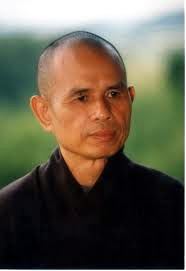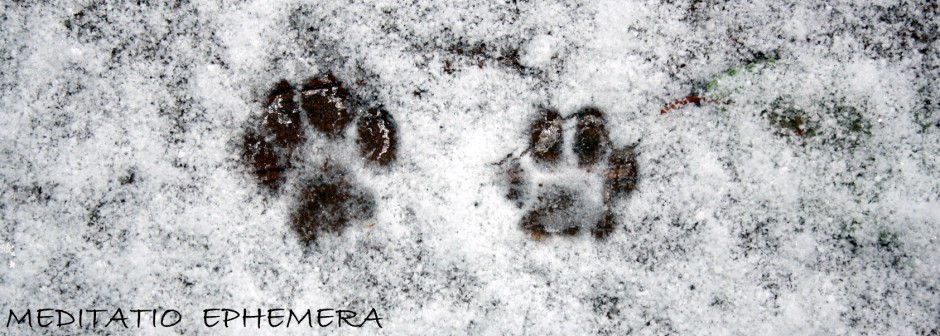 I didn’t realize that Prince had died until I saw the front-page headline in the break room at work the next day.
I didn’t realize that Prince had died until I saw the front-page headline in the break room at work the next day.
My jaw dropped.
“Prince died?” I asked, incredulous.
“Yeah,” said a co-worker. “Didn’t you know? It was all over the news yesterday. And I think Chyna died, too.”
“The whole country!?” I asked, and was visited by a flurry of thoughts. First: That really should have been the headline; Prince was great, but China — you know — 1.4 billion people. Second: Scratch that economic threat to American global imperialism. And, third: Perhaps I should start keeping up with the news again.
I was relieved to learn later that it was Chyna, the former wrestling superstar and actress

who died, and not China the country,

though of course the news was still very sad.
And I was reminded again of how out of touch I am with current events. This is true despite having made my living in a newsroom. I was a reporter for two decades; then, I taught journalism to university students for eight years, exhorting them to keep up with what was happening because, you know: It mattered.
Yet a certain world-weariness had begun to creep into my engagement with the news some years earlier. Part of it was having been in the business long enough to develop a sort of Ecclesiastical perspective — not in the broader Christian sense, but in the “there is nothing new under the sun” sense of the Old Testament preacher. Variations on the same themes presented themselves time and time again: senseless crimes, tragic deaths, violence and injustice, manmade and natural disasters.
As journalists we could sometimes make sense of it, and sometimes not. We occasionally prompted meaningful change with our reporting, but mostly things went on substantially as they had before. The world kept turning, people kept behaving scandalously and it all stopped seeming so urgent, so important.
Of course, there’s a powerful argument to be made for nonetheless staying engaged, namely that we cannot strive to right wrongs, do good and generally become a more principled and enlightened species if we keep our heads in the sand. This is true. But it’s also true that the sheer weight of so much daily suffering, dying and conflict — the stuff of which news is substantially made, most of which we can do nothing about — can gradually, insidiously, burden our hearts and tax our spirits. It can feel like a slow-acting poison.
That’s why Buddhist monk and teacher Thich Nhat Hanh suggests we watch what we take into our minds no less than what we take into our bodies.
“We practice mindful consumption to protect our body and our consciousness from ingesting toxins,” he writes. “Certain television programs, books, magazines and conversations can bring into our consciousness violence, fear and despair. We have to practice mindful consumption to protect our body and consciousness and the collective body and consciousness of our family and our society.”
I didn’t like this counsel when I first read it; it felt vaguely paternalistic. After all, we are not children, but capable, thinking adults. We shouldn’t have to self-censor the material we ingest for fear of its potentially destructive effects.
Now, I’m not so sure. Many of us — especially those who have been on the planet awhile — have experienced what Thich Nhat Hanh is talking about, though we may not immediately connect our ennui or irritability to mental toxins. And in our hyper-accelerated information age, it’s not just the content that corrodes, but the rapid-fire form in which it’s delivered.
Scientists have long known that regular exposure to the fast and fragmented imagery of modern media rewires the developing human brain in worrisome ways. I suspect that adults are affected, too. I know I feel more rested and better-centered after an evening with a good book — or a leisurely walk, or, in loving conversation with a friend — than I do after bingeing on Grey’s Anatomy.
It makes sense: We all know that sugar, booze and other toxins will eventually take their toll on our bodies; why should our psyches be less affected by careless consumption? And minds and hearts so burdened are less likely — not more — to be healthy themselves, and thus able to make a constructive difference in areas within their realm of influence.
This doesn’t mean we need to check out entirely, only that we might check in more selectively, feeding our world-weary minds and hearts with the same care we might our sick, tired or aging bodies. Because, Dearly Beloved: We are gathered here to get through this thing called life, and we don’t want to make it any harder than it already is.



Thich Nhat Hanh didn’t listen
to the news, either 🙂
LikeLiked by 1 person
Love this post Cate. I made a choice years ago about media, following the advice of the monk above. Almost never watch news. No regrets and I don’t miss to much neither. Besides…the most important stuff you always hear about anyway 🙂
LikeLike
Thanks, Ann. Yes, I think we can always find out about matters near and dear to our hearts, in which we might have some positive impact.
LikeLiked by 1 person
So good, Cate. That quote is amazing. I have come to understand that sentiment, especially with my past harmful ways. It involved cutting out a lot of toxic and emotionally draining people from my life, and even reducing my time on-line (obvious by my sporadic blog reading) and in watching the news.
The world spins madly on with or without my being “in the know” on every tiny little dramatic detail.
And I am so much more balanced and calm and healthy than I’ve ever been; I’d even go so far as to say happier, too.
Much love you…Happy Spring!
Christy
LikeLike
Thanks, Christy, and it’s a pleasure to read your reflection in return. The toxic relationship thing is at least as real, harder to understand and much trickier to navigate. But, man — that can be poison, too, and much harder to step away from. Love right back to you!
LikeLike
Great post, it’s not always easy to be distant towards news
LikeLike
Thanks. And yes, you’re right: It can be hard to detach.
LikeLiked by 1 person
Yes
LikeLike
Great reflections, once again. Always striving for balance, aren’t we? At least that’s what we can hope for.
For years I have struggled with the fact that my parents neither own a television nor have any sense of what is going on the world. Their constant ‘positive attitude’ and, in my opinion, general disregard for the political and human upheaval is found irresponsible to me.
For myself, I try to look both left and right in reporting, dipping myself regularly in thoughts I don’t necessarily agree with. For my own growth, I know I am stymied if only looking for rainbows and unicorns. Balance.
LikeLike
Thanks for responding, Cousin. Balance is always wise. 🙂 If the idea is to affect change on some issue, it seems wise to work within what Stephen Covey calls our circle of influence. It’s pointless to get all upset about problems one can do nothing about. Some people, I think, just like intellectual sparring and use media consumption as fodder; others, I suspect, use it as distraction from matters closer to home that they’d rather not face.
LikeLike
Sounds like “but I’m better”. I guess positivity is no longer popular.
LikeLike
I enjoyed your reflection on this subject – one which I ponder in selecting my daily intellectual diet about what is going on in the world. Excellent commentary.
Dan McSweeney
Solihull, England
LikeLike
Thank you, Dan! I appreciate the response from a kindred spirit who also considers this balance.
LikeLike